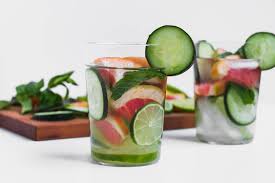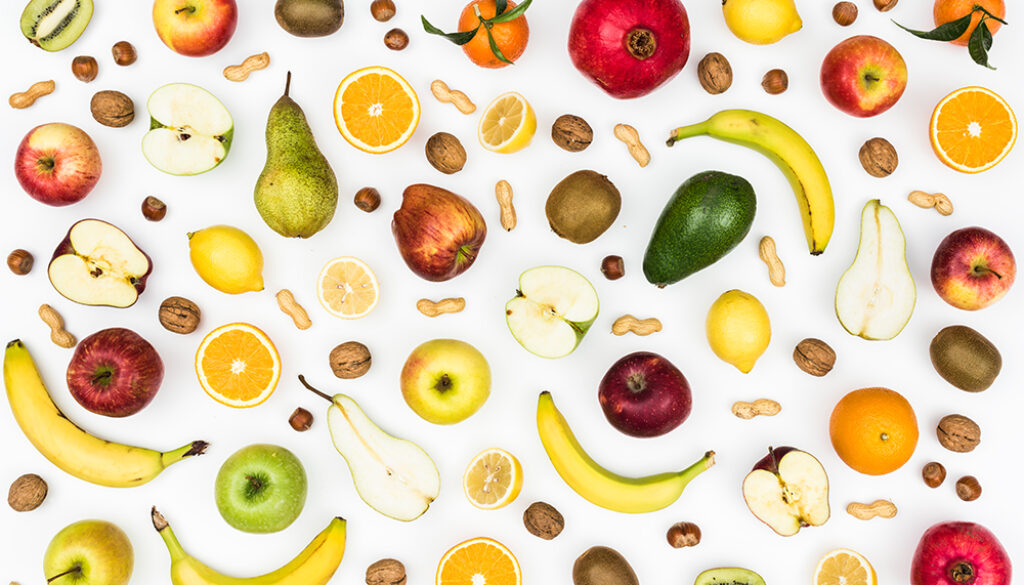The Importance of Hydration in Your Diet
The article delves into the importance of hydration in your diet, emphasizing its impact on overall health and well-being. Hydration is an essential aspect of maintaining good health and well-being. While many people understand the importance of staying hydrated, they may not fully grasp the impact it has on various aspects of their lives. In this article, we will explore why hydration is crucial for overall health, the effects of dehydration on the body, and practical tips for ensuring adequate hydration throughout the day.
Understanding the Importance of Hydration
Staying properly hydrated is vital for the body’s optimal functioning. Water plays a crucial role in various bodily processes, including temperature regulation, nutrient absorption, waste excretion, and joint lubrication. When you don’t drink enough water, dehydration occurs, leading to a range of adverse effects.
What Happens When You Don’t Stay Hydrated
Dehydration can have several negative consequences for your health. In mild cases, it may result in symptoms like thirst, dry mouth, fatigue, and decreased urine output. However, severe dehydration can lead to dizziness, confusion, rapid heartbeat, and even organ failure. It is crucial to pay close attention to your hydration levels to prevent these issues.
Dehydration Symptoms and Risks
Recognizing the signs of dehydration is essential for preventing complications. Symptoms may vary depending on the severity, but common indicators include dark urine, dry skin, headaches, muscle cramps, and lightheadedness. Additionally, certain individuals are at a higher risk of dehydration, such as athletes, older adults, and those living in hot climates.

How Hydration Affects Your Overall Health
Hydration has a significant impact on various aspects of your health, both physical and mental. It plays a crucial role in maintaining your energy levels and physical performance.
Impact on Physical Performance and Energy Levels
Proper hydration is essential for optimal physical performance. During exercise, water helps regulate body temperature, lubricate joints, and deliver nutrients to muscles. When you’re dehydrated, your performance may suffer, leading to decreased endurance, slower recovery, and increased fatigue.
Influence on Mental Clarity and Concentration
In addition to physical performance, hydration also affects cognitive abilities. Studies have shown that even mild dehydration can impair brain function, leading to poor concentration, decreased alertness, and impaired memory. By staying adequately hydrated, you can improve your overall mental clarity and focus.
Hydration and Digestion
Maintaining proper hydration is crucial for a healthy digestive system. Water plays a vital role in the digestion, absorption, and transportation of nutrients throughout the body.
Water’s Role in Digestion and Absorption of Nutrients
When you consume food, water helps break it down into smaller particles and facilitates the absorption of nutrients. It aids in the digestion of carbohydrates, proteins, and fats, ensuring efficient nutrient absorption. Insufficient hydration can lead to digestive issues such as constipation and stomach discomfort.
Preventing Constipation with Adequate Hydration
One common digestive problem that can be prevented through hydration is constipation. Without enough water, the stools can become hard and difficult to pass. Drinking an adequate amount of water softens the stools, promoting regular bowel movements and preventing constipation.
Hydration for Weight Management
Incorporating hydration as an integral part of your weight management plan can be highly beneficial. Water has several properties that contribute to weight loss and maintaining a healthy weight.
Water as a Natural Appetite Suppressant
Drinking water before meals can help control your appetite and prevent overeating. Water fills up your stomach, providing a sense of fullness that can reduce the amount of food you consume. By making a habit of drinking water before meals, you may find it easier to maintain a healthy weight.
Increasing Metabolism and Promoting Weight Loss
Staying hydrated can also boost your metabolism, allowing your body to burn calories more efficiently. Water is involved in various metabolic processes, and when you are dehydrated, your metabolism may slow down. By drinking enough water, you can support your body’s ability to burn fat and aid in weight loss.
Hydration and Skin Health
Proper hydration plays a pivotal role in maintaining healthy and youthful-looking skin. Your skin is the largest organ and requires adequate hydration to function optimally.
Nourishing the Skin from Within
By maintaining proper hydration, you provide the necessary moisture for your skin cells. This helps improve elasticity, reducing the appearance of wrinkles and fine lines. Drinking enough water can also enhance the overall complexion, giving your skin a healthy and radiant glow.
Preventing Dryness and Promoting a Youthful Appearance
One of the most common skin issues associated with dehydration is dryness. When your body lacks sufficient water, your skin may become dry, flaky, and dull-looking. By prioritizing hydration, you can prevent dryness and promote a youthful appearance.
Hydration and Exercise
Staying properly hydrated is especially crucial during exercise, as your body loses fluids through sweat. Ensuring adequate hydration can enhance your performance and improve your overall exercise experience.
Importance of Hydration During Workouts
When you exercise, your body loses water through sweat, which can lead to dehydration if not replenished. Proper hydration before, during, and after workouts is essential to maintain optimal performance, prevent muscle cramps, and regulate body temperature. It is recommended to drink water or sports drinks to replenish lost fluids during exercise.
Optimal Hydration Strategies for Athletes
Athletes and individuals engaged in intense physical activity should pay extra attention to their hydration needs. Drinking water alone may not be sufficient in these cases, as electrolyte imbalances can occur. Hydration strategies for athletes often involve incorporating sports drinks or electrolyte-rich fluids to ensure proper hydration and nutrient replenishment.
Hydration and Brain Function
Hydration plays a crucial role in supporting brain health and cognitive function. Your brain requires adequate hydration to function optimally and maintain mental clarity.
The Impact of Water on Cognitive Abilities
Research has shown that even mild dehydration can have a significant impact on cognitive abilities, including memory, attention, and problem-solving skills. When you’re dehydrated, your brain cells shrink, leading to impaired performance. By staying properly hydrated, you can enhance your cognitive abilities and prevent mental fatigue.
Preventing Brain Fog and Promoting Mental Alertness
Brain fog, characterized by difficulty concentrating, forgetfulness, and mental fatigue, can often be linked to dehydration. By ensuring adequate hydration, you can prevent brain fog and improve your mental alertness and overall cognitive function.
Tips for Hydrating Throughout the Day
Incorporating proper hydration habits into your daily routine is essential to ensure you meet your body’s water requirements. Here are some practical tips to help you stay hydrated throughout the day:
Calculating Your Daily Water Intake Needs
While the “eight glasses a day” guideline is a good starting point, your daily water intake needs may vary based on various factors, such as activity level, climate, and individual differences. An effective way to estimate your water needs is to multiply your body weight in pounds by 0.5 to give you the number of ounces you should aim to consume each day.
Practical Ways to Increase Water Consumption
To increase your water intake, consider carrying a reusable water bottle with you and sipping water throughout the day. Set reminders or create a schedule to ensure you drink water regularly. You can also incorporate hydrating foods such as fruits and vegetables into your meals and snacks.
Beyond Water: Hydrating Foods and Beverages
While water is the best source of hydration, several other foods and beverages can also contribute to your overall hydration status.
Incorporating Hydrating Fruits and Vegetables into Your Diet
Fruits and vegetables with high water content, such as watermelon, cucumbers, oranges, and strawberries, can help increase your hydration levels. Including these foods in your meals and snacks can be an enjoyable way to hydrate while providing essential nutrients.
Other Beverages that Contribute to Hydration
In addition to water, other beverages like herbal tea, coconut water, and milk can also aid in hydration. While some caffeinated drinks like coffee and tea can have diuretic effects, they can still contribute to your overall fluid intake. It is best to consume them in moderation and balance them with sufficient water.
The Role of Electrolytes in Hydration
Electrolytes are minerals that carry electrical charges and play a vital role in maintaining proper hydration and fluid balance in the body.
Understanding the Importance of Electrolyte Balance
Electrolytes like sodium, potassium, calcium, and magnesium are essential for various bodily functions, including maintaining fluid balance and supporting nerve and muscle function. Ensuring a balance of these electrolytes is crucial for optimal hydration.
Electrolyte-Rich Foods and Sports Drinks
Electrolytes can be obtained from foods such as bananas, avocados, spinach, and coconut water. Additionally, sports drinks formulated with electrolytes can help replenish these minerals during intense physical activity or prolonged periods of sweating.
Hydration and Age
Different age groups have unique hydration needs, and it’s important to consider these factors to maintain proper hydration.
Special Considerations for Children and Teenagers
Children and teenagers may require additional reminders to drink water regularly, especially during school hours or physical activities. Parents and caregivers should encourage their hydration by providing access to water and incorporating hydrating foods into their diets.
Hydration Challenges for Older Adults
Older adults may experience decreased thirst perception and kidney function, making them more prone to dehydration. It is crucial for older adults to monitor their water intake and ensure they drink enough fluids throughout the day, especially during hot weather or when taking certain medications.
Common Myths about Hydration
There are several myths surrounding hydration that can lead to confusion and misinformation.
Debunking Misconceptions About Hydration
One common myth is that you should drink only when you feel thirsty. However, thirst is not always a reliable indicator of hydration status. It is important to drink water regularly, even if you don’t feel thirsty, to prevent dehydration. Another myth is that all beverages hydrate equally, but some drinks, such as sugary sodas or alcohol, can actually contribute to dehydration.
Separating Fact from Fiction
To ensure optimal hydration, it is essential to rely on scientific evidence rather than popular myths. Consulting reliable sources and understanding the principles of hydration can help dispel misconceptions and make informed decisions about your fluid intake.
Signs of Proper Hydration
Monitoring your hydration levels is key to maintaining adequate water intake. Various signs can indicate that you are properly hydrated.
How to Know if You Are Adequately Hydrated
A simple way to assess your hydration status is by monitoring your urine color. Generally, clear to light yellow urine is a sign of proper hydration, while dark yellow urine may indicate dehydration. Other signs include having a regular thirst response, feeling energized, and maintaining a healthy body weight.
Monitoring Urine Color and Other Indicators
Urine color can be a helpful visual cue, but it is not the only indicator of hydration. Other factors, such as thirst, overall well-being, and physical performance, should also be considered when assessing your hydration status.
Conclusion: The Importance of Hydration in Your Diet
Prioritizing hydration in your diet is paramount for maintaining optimal health and well-being. Stay hydrated to support your physical performance, cognitive abilities, digestion, weight management, skin health, and overall vitality. By incorporating practical strategies and paying attention to your body’s signals, you can ensure you meet your daily hydration needs.
Also Read:
The Ultimate Guide to Glowing Skin: Tips and Tricks



